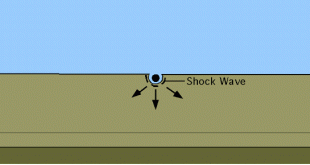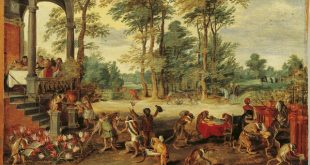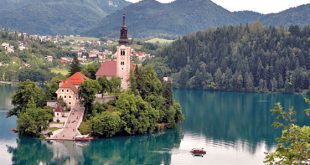How did conventional economics survive the crisis? Handwaving.Criticism of Paul Krugman and New Keynesian economics, which is based on "rational behavior and market equilibrium as a baseline" (Krugman).Skidelsky concludes, "Macroeconomics still needs to come up with a big new idea." I would rephrase that as "a new big idea." Theories are based on a "big idea" that constitutes the architecture of the framework. Rationality and equilibrium isn't it.Project SyndicateHow [Conventional]...
Read More »Probability for geeks
The Lightning network is being touted as the solution to Bitcoin's scaling problems. If lots of transactions can be taken off the main chain, the thinking goes, then Bitcoin can still take over the world despite its considerable performance problems. Lightning enthusiasts say that when fully enacted, the network will be able to process millions of transactions at, er, lightning speed, without compromising decentralisation, security or transparency.But there are dissenting voices. For...
Read More »Lehman’s Aftershocks
Peter Praet's speech at the Money, Macro and Finance conference last week was a goldmine. I've already discussed the central bank credibility problem revealed by his final slide. But his presentation went far, far wider than central banks. It raised serious questions about the future of the global economy.This slide - the first in his presentation - shows that there have been three significant global shocks in the last decade, not one: The first, obviously, is the deep global recession...
Read More »Gwynn Guilford — House flippers triggered the US housing market crash, not poor subprime borrowers
A new explanation of the financial crisis arguing that the proximate cause was not sub-prime but flippers that caught when the music stopped, and the lenders that were funding them. The sub-prime borrowers were a knock-on effect of loose lending. The grim tale of America’s “subprime mortgage crisis” delivers one of those stinging moral slaps that Americans seem to favor in their histories. Poor people were reckless and stupid, banks got greedy. Layer in some Wall Street dark arts, and...
Read More »Pam Martens and Russ Martens — Corporate Media Continues to Pump Out Fake News on Wall Street Crash of 2008
When there is an epic financial crash in the U.S. that collapses century old Wall Street institutions and brings about the greatest economic collapse since the Great Depression, one would think that the root causes would be chiseled in stone by now. But when it comes to the 2008 crash, expensive corporate media real estate is happy to allow bogus theories to go unchallenged by editors. What is happening ever so subtly over time is that the unprecedented greed, corruption and unrestrained...
Read More »Crypto-tulips
Here is a very familiar financial bubble, in pictorial form: And this is what it looks like, charted: In those days, of course, tulips at least had to be able to flower. But things have changed since then.There are three key stages in the lifecycle of a financial bubble:The "Free Lunch" period. A long, slow buildup of price distortion, during which investors convince themselves that rising prices are entirely justified by fundamentals, even though it is apparent to (rational) observers...
Read More »“America First” and Financial Stability: 26th Minsky Conference
Participants Lakshman Achuthan, Cofounder and Chief Operations Officer, Economic Cycle Research Institute Robert J. Barbera, Codirector, Center for Financial Economics, The Johns Hopkins University Fernando J. Cardim de Carvalho, Senior Scholar, Levy Institute; Emeritus Professor of Economics, Federal University of Rio de Janeiro (UFRJ) Michael E. Feroli, Chief US Economist, JPMorgan Chase & Co. Scott Fullwiler, Professor of Economics, University of Missouri–Kansas City Esther L. George,...
Read More »Slovenia and the banks
I bet you've never heard of Slovenia. It's the northernmost Balkan state, squeezed between Austria, Italy and Croatia on the Adriatic coast. It's small, peaceful (by Balkan standards) and prosperous compared to the rest of the Balkans, though that isn't saying much. It is also stunningly beautiful, in a mountains-and-lakes sort of way. It is in many ways rather like Austria.But at the moment, Slovenia is famous not for its lovely scenery, or its important history, or its rich culture. No,...
Read More »The EU’s greatest achievement
"The EU's greatest achievement is the Euro", said Michael Portillo on the BBC's This Week programme last Thursday.No, Michael, it isn't. It is the EU's worst mistake.As Yanis Varoufakis entertainingly explains in an interesting lecture published in the Australian Journal of Political Economy, the creation of the Euro led inexorably to the buildup of unsustainable debt - both private and public - in the Eurozone periphery countries: The problem is that creating a monetary union is a...
Read More »Have we done enough to prevent another financial crisis?
Notes from a talk given at Trinity Business School, Dublin, on 26th May 20164 Well, it depends what sort of crisis you mean. Have we done enough to prevent a crisis like the last one? Yes. We have scared ourselves so much about the dangers of disorderly bank failure that no way are we going to allow that to happen again – at least, not until we who lived through the crisis, and our children and grandchildren whom we tell about the crisis, are long gone and our legacy forgotten. No-one...
Read More » Heterodox
Heterodox






